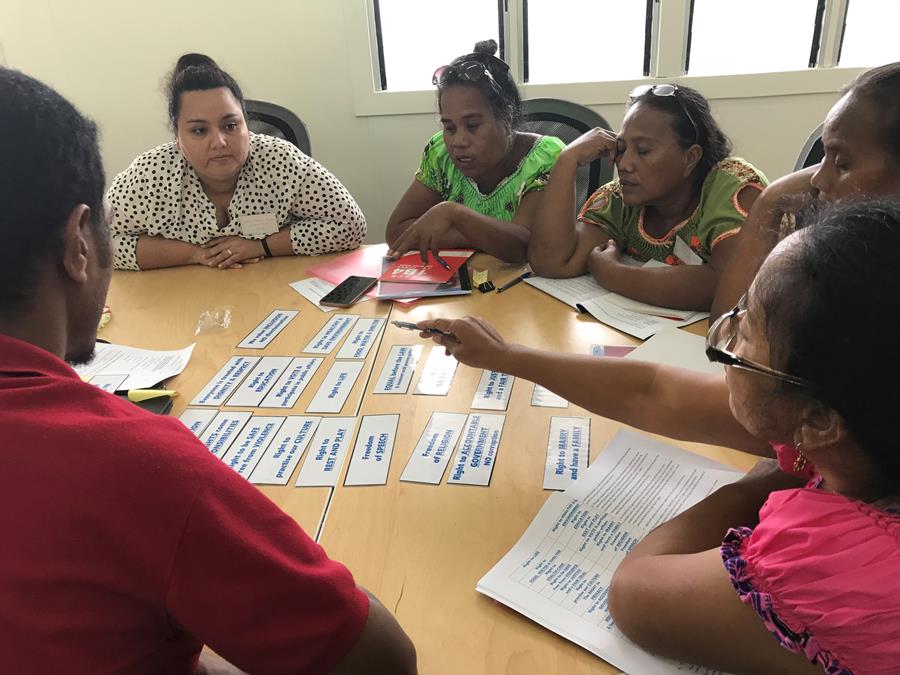More than 30 school leaders, representing 16 schools from North and South Tarawa have completed a workshop on inclusive education. They will now return to train their staff on the rights of the child, and lead action planning to ensure safe and inclusive learning environments.
The workshop was organised by the Pacific Community’s (SPC) Regional Rights Resource Team (RRRT) under the Pacific Partnership to End Violence Against Women and Girls (Pacific Partnership). SPC is implementing the Social Citizenship Education Programme in Kiribati, Tuvalu and the Marshall Islands under the Pacific Partnership, funded by the European Union (EU).
The Acting Head of Cooperation at the Delegation of the EU for the Pacific, Adrian Nicolae said “The EU is strongly committed to gender equality, the empowerment of women of all ages and the elimination of all forms of violence against women and girls around the world. We believe firmly that education is an essential avenue to change attitude and behaviour to end violence against women and girls: building a culture of human rights and gender equality starts at school.
The younger generation will be the leaders of change in attitudes and norms in the society: education is a key player in preparing them to be local and global social citizens. This requires that schools provide the youth with a safe and inclusive learning environment, and that school leaders, teachers and staffs lead the action to ensure such enabling environments and give students the opportunity to learn about and practise being ‘social citizens'”.
RRRT facilitated the training in partnership with the Kiribati Education Improvement Program. Also in attendance were Lecturers and Assistant Lectures from the Kiribati Training College who have been instrumental in delivering the social citizenship education programme to date. Following the training of Kiribati Training College staff in 2018, staff then rolled out a summer school training programme to teachers in January 2019 and further in-service training is planned throughout 2019. Topics have included human rights and responsibilities, gender equality and now social inclusion.
“Social Inclusion can be likened to an umbrella – overarching and covering what happens in a school. In order for any umbrella to stay upright and perform its function, the spokes must be strong, must be firmly held in place and need to work together. If one or more spoke is bent, broken or not fully attached, social inclusion can fall apart. There are a number of essential spokes to this umbrella, which this workshop has touched on including rights and responsibilities, non-violence, equity, and inclusion of groups that are vulnerable”, said SPC RRRT Pacific Partnership Programme Manager, Mr Nilesh Goundar.
The Pacific Partnership brings together governments, civil society organisations, communities and other partners to promote gender equality, prevent violence against women and girls (VAWG), and increase access to quality response services for survivors. The EUR19.5million programme is funded primarily by the European Union (EUR12.7m) with targeted support from the Australian Government (EUR6.2m) and UN Women (EUR0.6m).

